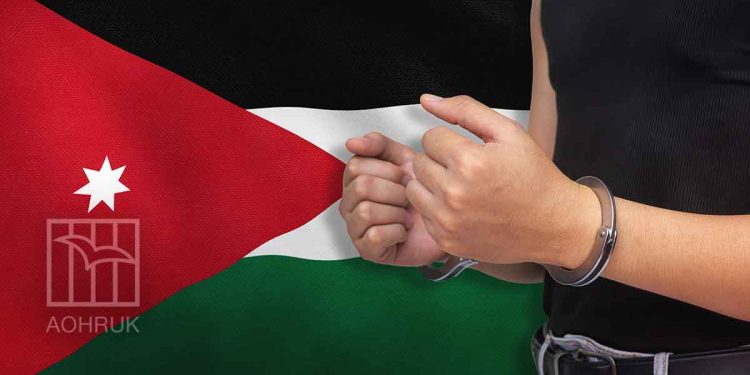Jordanian authorities have intensified a campaign of arrests targeting activists who have expressed support for Gaza, raising concerns over the state of political freedoms and civil rights in the country. Dozens have been detained in recent weeks, with reports indicating that many have been held without formal charges or access to legal representation.
During a parliamentary session on Monday, MP Saleh Al-Armouti criticised the government’s actions, calling for an immediate end to the arrests and the use of night raids. He described these measures as a violation of the Jordanian constitution and international human rights conventions. According to Al-Armouti, at least 27 individuals have been detained, the latest just days ago. Some have reportedly spent more than 70 days in custody without being referred to a court, raising serious concerns about arbitrary detention and the denial of due process.
Al-Armouti warned that the crackdown is taking place against the backdrop of growing regional tensions, particularly in light of statements from former US President Donald Trump and Israeli Prime Minister Benjamin Netanyahu regarding the potential forced displacement of Palestinians to Jordan. He stressed that the arrests, combined with external pressures, risk destabilising national security and further restricting civil liberties.
Legal experts and human rights organisations have condemned the detentions as a violation of international law. Jordan is a signatory to the International Covenant on Civil and Political Rights, which explicitly prohibits arbitrary detention and guarantees the right to a fair trial. Article 9 of the covenant states that “no one shall be subjected to arbitrary arrest or detention” and that detainees “shall be entitled to a fair and prompt trial”. Additionally, international law upholds the presumption of innocence, a fundamental principle requiring that all individuals be treated as innocent until proven guilty in a court of law. The continued detention of activists without formal charges undermines these legal obligations.
As the wave of arrests continues, calls for accountability have intensified. Human rights organisations have urged the Jordanian government to release all individuals detained for expressing political opinions and to ensure compliance with both domestic and international legal standards. The use of security measures to suppress dissent has raised concerns about the future of civil liberties in Jordan, where political opposition and free expression are facing unprecedented constraints.






























